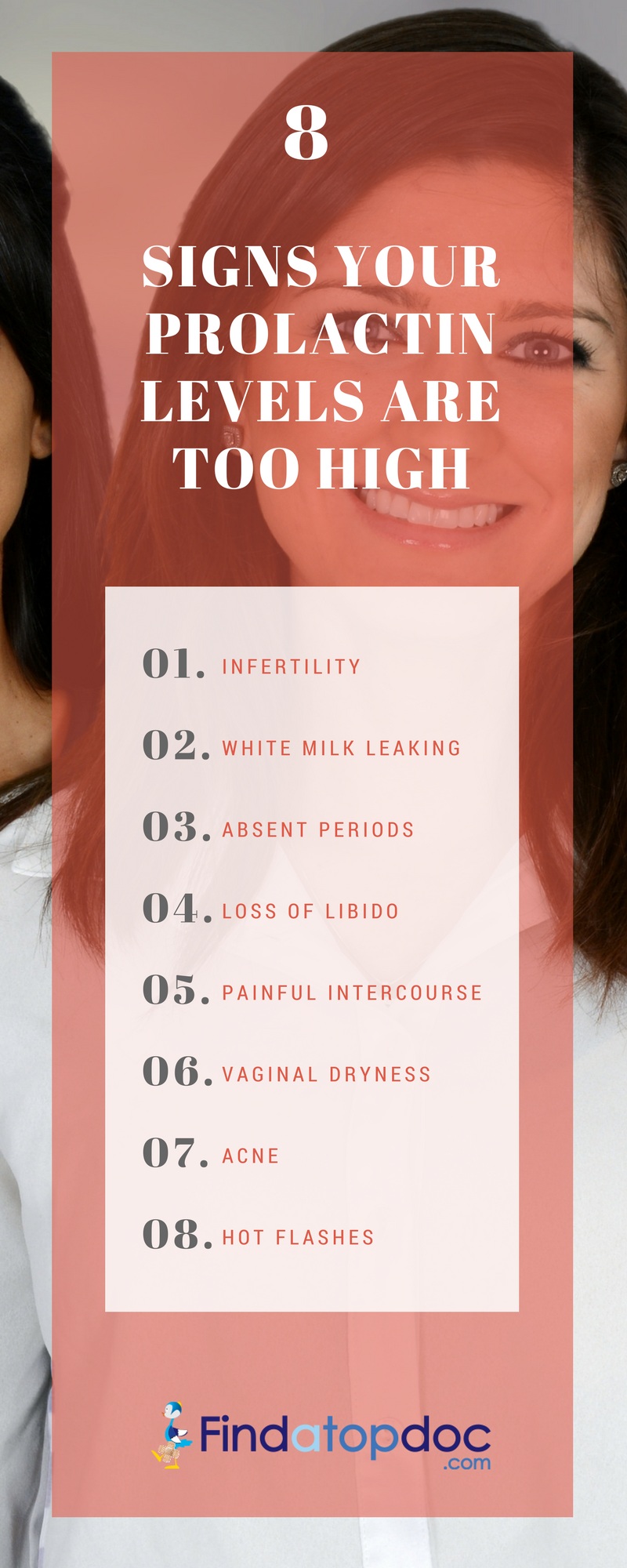
Source
How is prolactin controlled?
One of the main regulators of the production of prolactin from the pituitary gland is the hormone called dopamine, which is produced by the hypothalamus, the part of the brain directly above the pituitary gland. Dopamine restrains prolactin production, so the more dopamine there is, the less prolactin is released. Prolactin itself enhances the secretion of dopamine, so this creates a negative feedback loop.
Why is the prolactin test done?
Women with prolactinoma symptoms may need the test. Prolactinoma is a noncancerous tumor on the pituitary gland that produces high levels of prolactin. Symptoms of prolactinoma in women include:
- unexplained headaches
- visual impairment
- galactorrhea, or lactation outside of childbirth or nursing
- pain or discomfort during sex
- abnormal acne